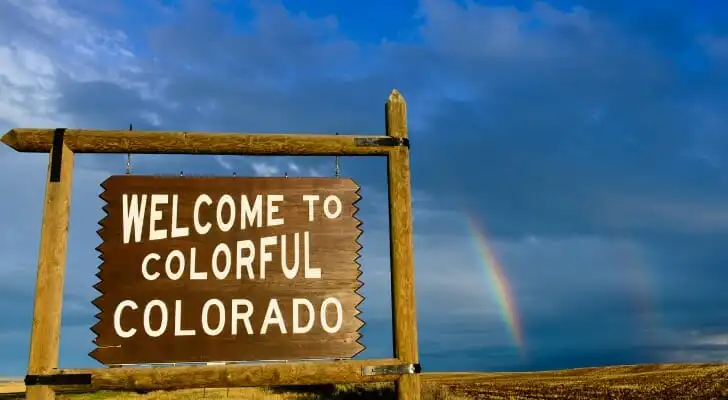
Estate planning can take a lot of energy, and there are many options to consider when coming up with your directions for what will happen to your money and possessions after you die. A living trust can ensure that your assets are protected and your family is cared for. Let’s break down the steps for creating a living trust in Colorado and examine when this is a good estate planning option for your situation.
A financial advisor can help you create an estate plan for your family’s financial goals.
How to Create a Living Trust in Colorado
Here are six steps to create a living trust in Colorado:
- Decide which type of trust you want to make: If you are single, a single trust is probably the best option. If you are married, a joint trust will probably be best. Joint trusts can house property owned jointly by you and your partner, so if you own assets like homes and cars jointly, it’s the best choice.
- Take inventory of your property: Consider everything, including physical property, cash, stocks, bonds and property. Now is also the time to gather relevant documents like home deeds and certificates of stock ownership.
- Pick a trustee: You can serve as the trustee for now, or you can pick someone else. If you name yourself trustee, you’ll need someone to serve as the successor trustee for when you die. This will be the person to distribute your property after you’ve died, so make sure you trust the person.
- Create the trust document: You can do it yourself with an online program or get the help of a professional.
- Get the trust document notarized: Sign the trust in front of a notary public.
- Fund the trust: This involves legally transferring the property into the trust. Though you can do this yourself, it is tricky. Getting a lawyer to help is probably the best bet.
What Is a Living Trust?

A living trust is a legal framework, established via a document, into which property and assets can be transferred. Each living trust has a trustee who is in charge of managing the trust and distributes the assets inside the trusts to beneficiaries according to instructions the trust founder leaves. You can be the trustee of your own trust or you can pick someone to do it for you, oftentimes a child or another trusted relative.
There are two types of living trusts: revocable and irrevocable. An irrevocable living trust is permanent. Once it is formed, the person who made the trust cannot remove the property or otherwise modify the trust. The trust takes ownership of the property and all taxes are paid via the trust. A revocable living trust, on the other hand, is more flexible. Property can be placed inside and removed as wanted. The grantor also maintains ownership of all property and pays the relevant taxes directly.
How Much Does It Cost to Create a Living Trust in Colorado?
It is difficult to estimate how much it will cost you to set up a living trust in Colorado, as a lot of it comes down to the method you use. You can create a living trust document by yourself with the help of an online program. This option will likely run you a few hundred dollars. You can also use an attorney, which will cost, possibly more than $1,000. The exact amount you spend, though, will be determined by the rate your attorney charges and how complex your estate is.
It is certainly cheaper to make a living trust alone, but there are some serious risks to DIY estate planning. This work is detail-oriented and requires a lot of research and precision to get right. If you aren’t up to that, getting a lawyer is the right decision. Make sure you hire a lawyer who is a trust specialist, not just an estate planner. Also, make sure you know the fees and discuss them upfront so there are no surprises.
Why Get a Living Trust in Colorado?
The reason people use living trusts is to make it easier for their families after they die. A living trusts makes it possible for a family dealing with the estate of a deceased relative to avoid the probate process. Colorado, though, uses the Uniform Probate Code, which makes the probate process fairly easy. Unless you have an especially complex estate, getting a living trust may not be worth it in Colorado.
Another benefit of living trusts is that it makes it easier to control how property is given to minors. A living trust allows you to leave the property in the trust under the supervision of the trustee until the child reaches a certain age. One more benefit of living trusts? If you become incapacitated you can avoid conservatorship. You already have a trustee controlling the property in the trust, so you won’t need to go through that process.
Who Should Get a Living Trust in Colorado?

Living trusts are not just for the wealthy, but Colorado has some rules in place that make them less useful for smaller estates. As noted above, the Uniform Probate Code makes probate a simpler process than in some other states. Moreover, the state has a simplified probate process for any estate worth less than $50,000, so if your estate will be less than that, it is unlikely that a living trust is the right choice for you.
A living trust may be more trouble than it is worth. It also leaves open a longer period for legal challenges after you die, so make sure you consider all potential downsides when you are proceeding. Even if you don’t make a living trust, you still need an estate plan.
Living Trusts vs. Wills
Even if you make a living trust, you still need to make a will. With your will, you can instruct your family what do with property that isn’t in the trust, plus a will can do the following”
- Name an executor
- Establish guardianship for minor children
- Give instructions for paying taxes and debts
- Select managers for children’s property
Living Trusts vs. Wills
| Purpose | Living Trusts | Wills |
| Names a property beneficiary | Yes | Yes |
| Allows revisions to be made | Depends on type | Yes |
| Avoids probate court | Yes | No |
| Requires a notary | Yes | No |
| Names guardians for children | No | Yes |
| Names an executor | No | Yes |
| Requires witnesses | No | Yes |
Living Trusts and Taxes in Colorado
Establishing a living trust won’t impact your taxes, but you should still know about the Colorado estate tax and inheritance tax.
Colorado has no estate tax or inheritance tax. There is a federal estate tax that applies to estate worth more than $12.06 million ($24.12 million for couples).
Bottom Line
A living trust is a handy arrow in the estate planner’s quiver. The state uses the Uniform Probate Code, though, so unless your estate is particularly large or complex, it may not be needed in Colorado. You can make a living trust by yourself, but if you want to use one it may make sense to find an attorney to help you do it right.
Estate Planning Tips
- Estate planning isn’t easy. A financial advisor can help you work through all the details to set up a living trust. SmartAsset’s free tool matches you with up to three financial advisors who serve your area, and you can interview your advisor matches at no cost to decide which one is right for you. If you’re ready to find an advisor who can help you achieve your financial goals, get started now.
- When you write a will, make sure to name guardians for your children. It isn’t pleasant to think about, but you’ll sleep better knowing you have a plan in place.
Photo Credit: ©iStock/bernardbodo, ©iStock/WhitneyLewisPhotography, SmartAsset.com